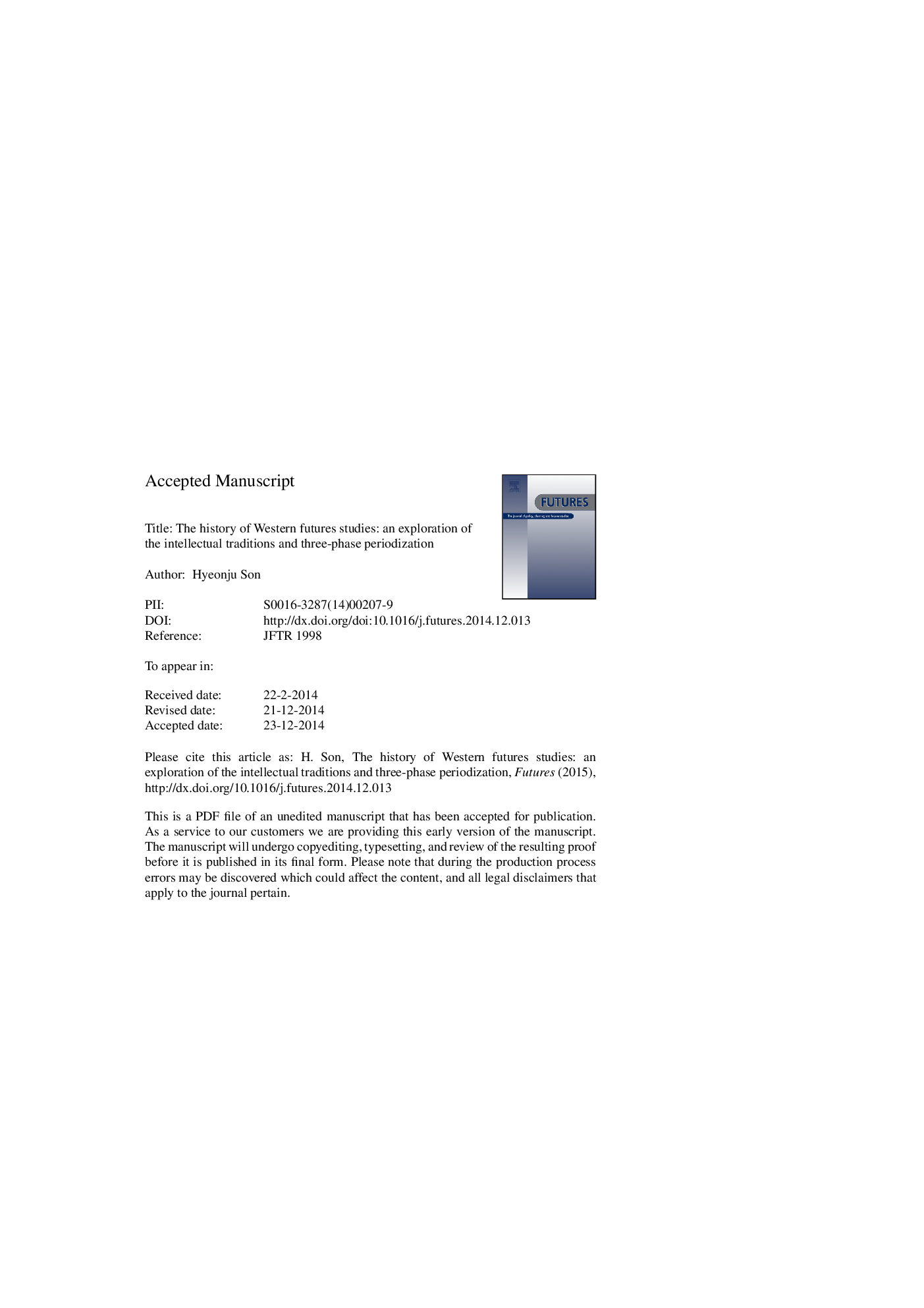| Article ID | Journal | Published Year | Pages | File Type |
|---|---|---|---|---|
| 7424268 | Futures | 2015 | 54 Pages |
Abstract
The main purpose of this paper is to present a three-phase periodization of modern Western futures studies to construct historical classification. In order to reach this goal, the following intellectual traditions are introduced to review the philosophical and historical contexts that affect the very foundations of futures studies: (a) religions, (b) utopias, (c) historicism, (d) science fiction, and (e) systems thinking. The first phase (beginning in 1945 to the 1960s) was the era of scientific inquiry and rationalization of the futures characterized by the prevalence of technological forecasting, the rise of alternative futures in systematic ways, and the growth of professionalization of futures studies. In the first phase, futures had become objects of rationalization removed from the traditional approaches such as utopia, grandiose evolutionary ideas, naive prophecies, science fiction, religious attitudes, and mystical orientation. The second phase (the 1970s and the 1980s) saw the creation the global institution and industrialization of the futures. This era was marked by the rise of worldwide discourse on global futures, the development of normative futures, and the deep involvement of the business community in futures thinking. In the second phase, futures studies-industry ties were growing and the future-oriented thoughts extensively permeated the business decision-making process. The third phase (the 1990s - the present) reflects the current era of the neoliberal view and fragmentation of the futures. This phase is taking place in the time of neoliberal globalization and risk society discourses and is characterized by the dominance of foresight, the advance of critical futures studies, and the intensification of fragmentation. In the third phase, futures practice tends to be confined to the support of strategic planning, and hence is experiencing an identity crisis and loss of its earlier status of humanity-oriented futures.
Keywords
Related Topics
Social Sciences and Humanities
Business, Management and Accounting
Business and International Management
Authors
Hyeonju Son,
